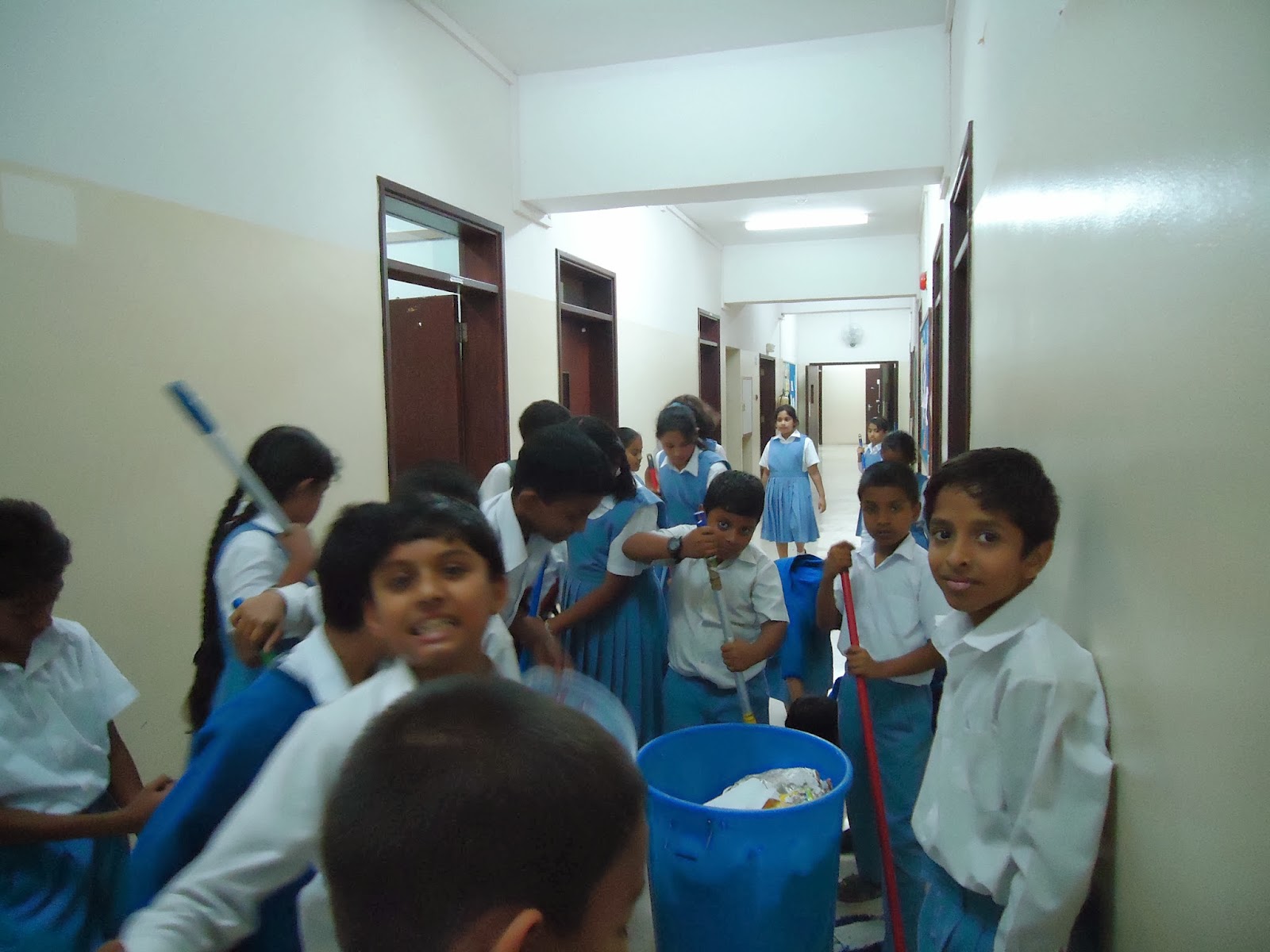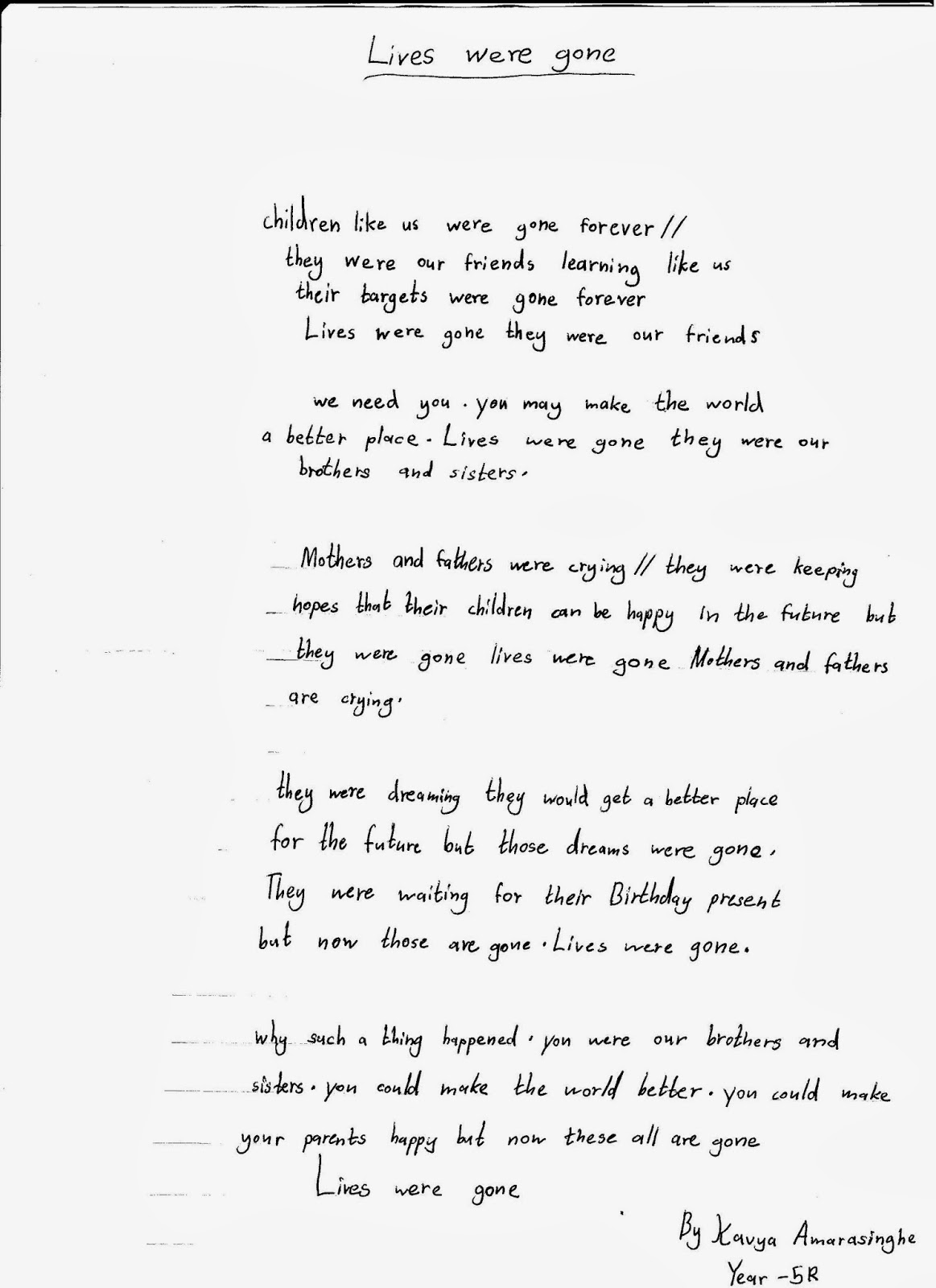‘Appreciate
the work, people do for us’- value based project implemented for year 5
children
“Excellence
is to do a common thing in an uncommon way.”-Booker T. Washington
Children in year 5G maintain
a friendship club as the part of the Citizenship Studies. They had organized a
cleaning session in the school to help the cleaners with the children in other
two classes, year 5B and Year 5R yesterday, 25th February 2014 from
2.30p.m to 4.00p.m to show appreciation for having the classrooms cleaned by
the cleaners every day.
Children have learnt that
they should be kind to everyone and show appreciation to those who do things
for them, whom they cannot personally thank. They have also learnt that
cleaners are also human beings and they should talk to them politely as they
talk to other people.
They worked with enthusiasm
having the spirit that they clean their own school; their second home.
They learnt and had fun
helping the cleaners. This will have an impact on them that they will remember
for the rest of their lives.
Children in year 5 classes
will carry out this project by doing it once a month.
I thank wholeheartedly the
Principal Sir for his immense support and the proper guidance and also the
parents for sending their children to make it a success even though the term
test is around the corner.
Ms. Anjalie Silva
 Citizenship teacher
Citizenship teacher
Cheer Up their hearts
In our lives,
We should help everyone
No matter who it is, we have
to…
Cheer up their hearts…
Today we helped the people
Who sweep and wash the floor
We never think they are not
important
In everyone’s heart there is
something special
Cheer up their hearts…
Some people may think
We are crazy when we help
the cleaners
But some will think we are
good children
Cheer up their hearts…
Let us help everyone
And cheer them all…
Kavya Amarasinghe
Yr.5R
Sri Lankan School Muscat
























